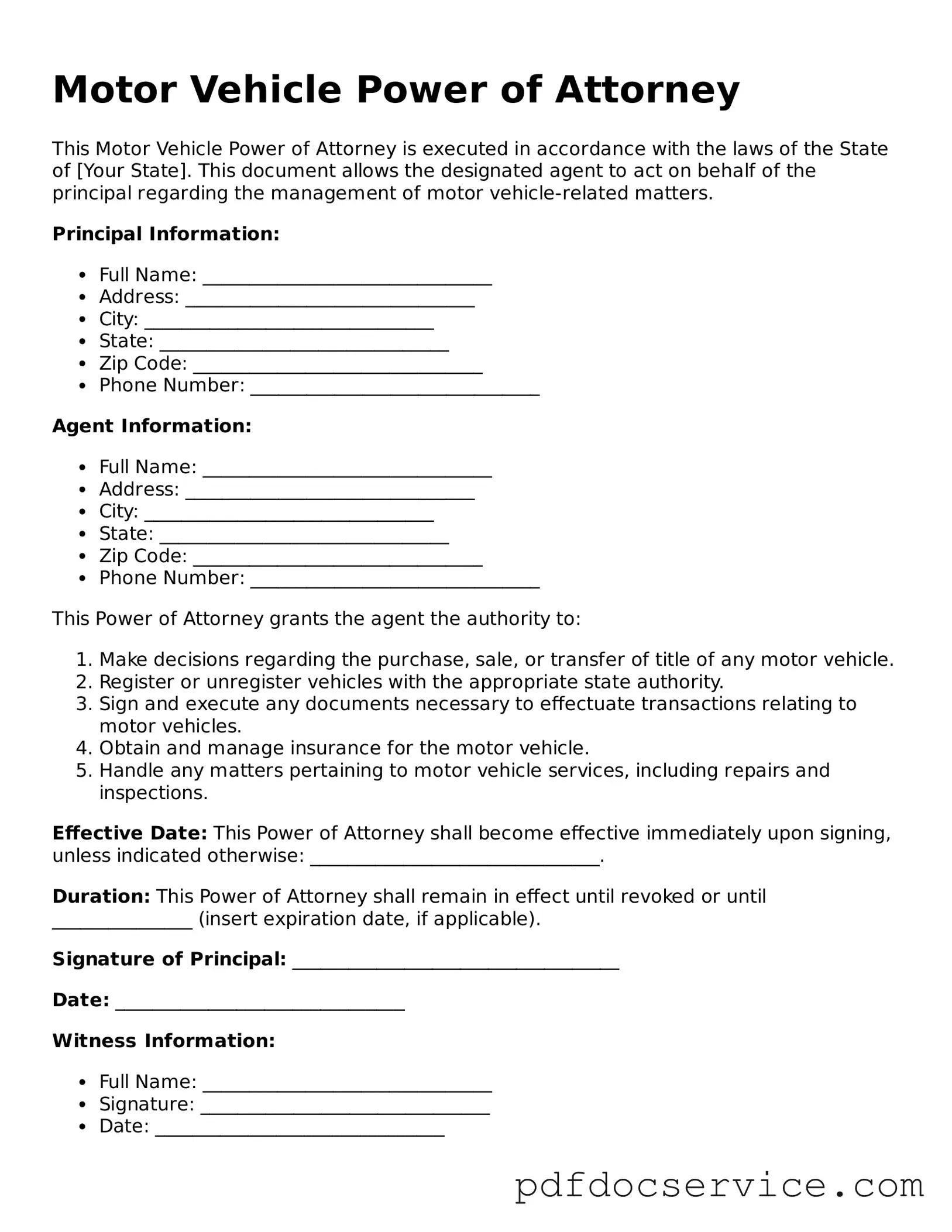A Motor Vehicle Power of Attorney form is a legal document that allows one person, known as the "principal," to authorize another person, called the "agent," to act on their behalf regarding motor vehicle transactions. This can include tasks such as registering a vehicle, transferring ownership, or handling other related matters with the Department of Motor Vehicles (DMV). The form provides the agent with the necessary authority to perform these actions without the principal's direct involvement.
When should I use a Motor Vehicle Power of Attorney?
This form is particularly useful in situations where the principal cannot be present to complete motor vehicle transactions. Common scenarios include:
-
The principal is out of state or country.
-
The principal is unable to visit the DMV due to health issues.
-
The principal is busy with work or personal commitments.
In these cases, designating an agent can simplify the process and ensure that necessary tasks are completed in a timely manner.
Who can be designated as an agent?
Almost anyone can be appointed as an agent through a Motor Vehicle Power of Attorney form. This includes family members, friends, or trusted associates. However, it is important to choose someone who is responsible and trustworthy, as they will have the authority to make decisions regarding your vehicle. In some states, there may be restrictions on who can serve as an agent, so it’s wise to check local regulations.
Completing the form is generally straightforward. Follow these steps:
-
Obtain the form from your local DMV or a legal website.
-
Fill in your personal information as the principal, including your name, address, and contact details.
-
Provide the agent's information, ensuring you include their name and address.
-
Specify the powers you are granting to the agent. You can choose to limit their authority to specific tasks or grant them broad powers.
-
Sign and date the form in accordance with your state’s requirements, which may include notarization.
Once completed, provide a copy to your agent and keep a copy for your records.
While many states recognize the Motor Vehicle Power of Attorney form, the specific requirements and validity can vary. It is essential to check your state’s laws regarding this document. Some states may have their own specific forms or additional requirements, such as notarization or witnesses. Ensuring compliance with your state’s regulations will help avoid any potential issues.
Can I revoke a Motor Vehicle Power of Attorney?
Yes, a Motor Vehicle Power of Attorney can be revoked at any time by the principal, as long as they are mentally competent. To revoke the authority, the principal should notify the agent in writing and may also want to complete a formal revocation form. It is advisable to inform the DMV of the revocation to prevent any unauthorized actions by the agent.
What happens if my agent misuses their authority?
If an agent misuses their authority, the principal may have legal recourse. This could include filing a complaint or pursuing civil action against the agent for any damages incurred. It is crucial to choose an agent wisely and maintain open communication to minimize the risk of misuse. Additionally, revoking the power of attorney can help prevent further unauthorized actions.
Notarization requirements vary by state. In some states, notarization is mandatory, while others may not require it. Even if it is not required, having the document notarized can add an extra layer of authenticity and may be beneficial if disputes arise. Always check your state’s specific requirements to ensure compliance.

